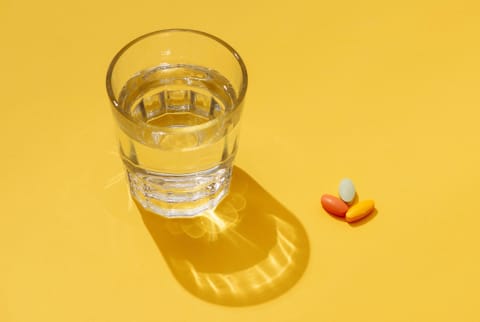Advertisement
The One Supplement That Will Take Your Workout Recovery To The Next Level

Ray Bass is the associate movement and wellness editor at mindbodygreen and a NASM-Certified Personal Trainer. She holds a degree in creative writing from the University of Pennsylvania, with honors in nonfiction.


My name is Ray, and I’m obsessed with recovery. Maybe it’s because I’ve seen how far the realm of recovery has come, or maybe it’s because I myself have sustained a number of injuries. Regardless, I’m infatuated, and I spend most of my time looking for the best recovery tricks out there.
Naturally, I’ve had my share of losses—but the recovery wins that I’ve discovered have made the lackluster experiences worth it. One of those wins is turmeric.
Why turmeric is great for recovery.
Turmeric has proven its weight in (literal) gold with regards to fighting inflammation. That’s because its active compound, curcumin, is anti-inflammatory and has many preventative health benefits. And given that the root cause of many diseases is inflammation, turmeric has risen in popularity in both its whole, ground, and supplement form.
“Inflammation is a root cause of many health conditions like metabolic syndrome, heart disease, and even cancer,” says Jessica Cording, M.S., R.D., CDN. “Inflammation has also been shown to play a role in cognitive decline. The effect of turmeric's powerful anti-inflammatory properties offers a protective benefit.”
What does that have to do with recovery, you ask? Well, a lot. Even though exercise is a health-boosting and generally anti-inflammatory practice, it actually causes us some inflammation, too. Soreness, for example, occurs when our muscles break down—we do a very intense workout, or push ourselves beyond our usual capabilities, and as a result, we tear miniature holes in our muscles. And when we’re feeling sore, that means our muscles are inflamed.
“Muscle soreness associated with exercise—known as delayed onset muscle soreness—is a result of inflammation from muscle metabolism,” says Jaime Schehr, N.D., R.D.
So if muscle soreness and fatigue is linked to inflammation, it would make sense that one way to minimize muscle inflammation is to integrate turmeric into your diet or routine, right? Right.
“Turmeric is one of the most well-known anti-inflammatory supplements,” Schehr notes. “And it may be beneficial for individuals who exercise often.”
Now to clarify, if you run a half marathon without training, taking a turmeric supplement or eating vegetable curry for dinner isn’t going to make the pain go away. But if soreness is something you deal with on a frequent basis (I’m over here raising my hand), then investing in a quality turmeric supplement could be worth it. Personally, I’ve found that taking a fermented turmeric supplement and magnesium before bed leaves my muscles feeling less fatigued and achy the next day. Of course, you have to find what works for you, but if you haven’t tried implementing turmeric, I have nothing but good results to report.
And if you still can’t kick your soreness—it’s okay, there are a lot of recovery options out there, and maybe this one isn’t yours. That said, you should probably still take a turmeric supplement. It’s one of the easiest ways you can keep inflammation at bay, and it has more health benefits than I can count on two hands.

Short On Time? Try This Personal Trainer's 5-Minute Full-Body Workout
Krista Stryker, NSCA-CPT

Short On Time? Try This Personal Trainer's 5-Minute Full-Body Workout
Krista Stryker, NSCA-CPT

Short On Time? Try This Personal Trainer's 5-Minute Full-Body Workout
Krista Stryker, NSCA-CPT

Short On Time? Try This Personal Trainer's 5-Minute Full-Body Workout
Krista Stryker, NSCA-CPT









